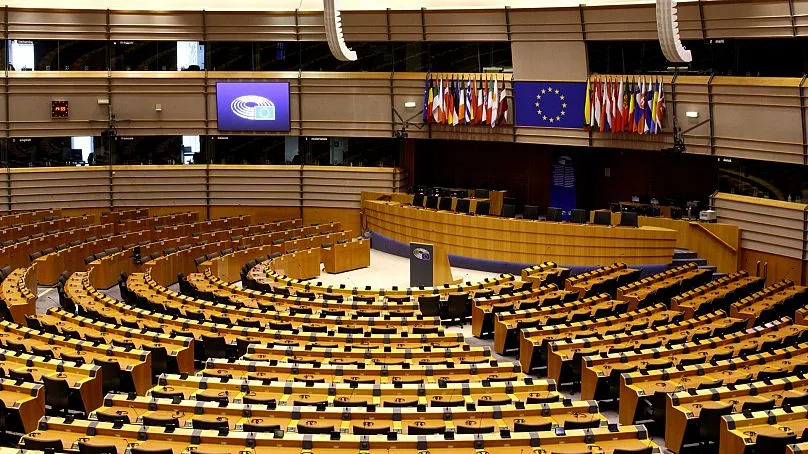Ahead of the European Parliament elections that will take place 6-9 June 2024, the letter, #CulturalDealEU (CDEU) is headed by the European Culture Foundation (ECF) alongside Culture Action Europe and Europa Nostra and has demanded that “culture to be explicitly included in the electoral manifestoes and platforms of parties and political groups.”
The open letter from the Netherlands-based charity notes the importance of culture to the ideological goals of the European Union, to promote integration of member states through valuing the individual cultures of each nation.
“Culture ignites citizens’ hearts and fuels their minds. Culture represents what we want for the future of our societies. For without culture, the very future of Europe is under threat. As it is its beating heart,” an ECF spokesperson tells Euronews.
The CDEU letter names the many challenges facing the EU’s sense of unity through shared values. Most recently, Russia’s invasion on Ukraine has created “dire challenges for Ukraine at large, including its cultural sectors. As well as wreaking death and destruction on cities and civilians, including many artists and cultural workers, the invader has deliberately targeted Ukraine’s cultural assets.”
Putin’s invasion of Ukraine represents a watershed moment for Europe, ECF claims as the threat in his approach spreads across the continent. “The rise of populist and extremist parties in many countries is challenging the very foundations of our democracies and the values that citizens have long enjoyed.”
Europe cares about culture
Cultural heritage is of massive importance to European voters, the CDEU letter explains. A recent Eurobarometer survey found that eight in 10 Europeans consider cultural heritage to be important to their community, region and the EU as a whole.
The cultural sector also employs 7.7 million people in Europe, accounting for 3.8% of the total employment of the EU, and similarly contributes to 4% of the EU’s GDP. Yet only 0.2% of the EU budget is earmarked for culture. To compare, agriculture contributes 1% to the EU’s GDP yet receives 11%.

Considering the discrepancy in how culture is funded, an ECF spokesperson explains: “Culture is still seen as a sector of minor importance and hence remains at the margins of political thinking and action – despite the fact that data show its economic, social and intrinsic cultural value to Europe and to Europe in the world.”
It’s of dire importance that the European Parliament takes the impact of culture seriously, the ECF continues. “We fear the far right has better understood the power of culture and is using culture to influence hearts and minds, also by infiltration of the social media spheres. For culture is making who we are, as Europeans, and hence should be positioned centrally in the European project and in the heart of discussions on the future of our continent,” they explain.
Promoting culture in Europe
It’s not the first time the ECF has stood up for culture in the EU. The organisation has been running since 1954 and has overseen some of the EU’s biggest cultural exchange programmes. In the 80s, it helped start the Erasmus student exchange programme that has since seen around 14 million students study abroad.
ECF’s most recent success was in its response to the Covid-19 pandemic. Alongside Culture Action Europe and Europa Nostra, two major European culture networks, ECF launched the Cultural Deal for Europe campaign. Similar to the EU’s green deal, the idea was that the EU would focus on integrating culture into its pandemic recovery policies.

After the pandemic saw the EU’s culture sector lose around €200 billion in revenue in 2020, the Cultural Deal for Europe campaign was a success. It was endorsed by over 110 cultural networks and organisations and led to the European Parliament adopting the 2% goal for culture recovery spending, securing around €12 billion.
This new campaign from the ECF ahead of this year’s seismic elections aims to revisit and expand on the goals of the Cultural Deal for Europe. Once again, the three networks demand that European politicians and political groups take culture seriously, including it in their manifestos and briefing leaders on the importance of culture to civil society. They want to “realise the potential of culture and cultural heritage for sustainable development, as drivers of peace and social justice, as well as efforts to fully incorporate culture in the EU’s Green Deal.”
Alongside the 2% culture funding goal, the CDEU plan envisions improvements for the market and nonmarket areas of the culture sector. This ranges from industries like film and music to the less tangible but no less important goals of “strengthening a European Sentiment”.
Suggestions include adding culture to the portfolio of a Vice-President of the European Commission, and long-reaching EU cultural policies.
Source: Yahoo News















